Steve Witkoff, a businessman who serves as President Donald Trump’s lead negotiator with Moscow on brokering an end to the Russia-Ukraine war, has asserted a settlement is “emerging.” He believes it will be more than a ceasefire and sees the possibility of a “permanent peace.”
A just and durable peace that brings an end to this brutal war would certainly be welcome. However, the details described by Witkoff to date leave considerable doubt about the prospects of his plan. He has described and reportedly advocates terms that blatantly favor Moscow and could prove unacceptable to Kyiv. Part of the problem may stem from the way in which the administration has structured its negotiations with Russian and Ukrainian officials.
Is there reason for optimism?
Nearly 38 months have passed since Russia launched its all-out invasion of Ukraine, and more than 11 years have gone by since the Russian military seized Crimea and began supporting fighting in Donbas in eastern Ukraine. Trump, who did nothing to persuade the Kremlin to leave Crimea or stop the fighting in Donbas during his first term, says he now wants to end the war.
On March 11, Ukrainian officials agreed to a U.S. proposal for a 30-day full ceasefire. Two days later, Witkoff took that proposal to Moscow, where he discussed it with Russian President Vladimir Putin. Witkoff described that discussion as “positive” and “solution-based.” However, more than a month later, Russia has yet to accept a full ceasefire.
By all appearances, Witkoff has become Trump’s lead negotiator on the war, at least with regard to the Kremlin. He met Putin again on April 11. It was that “compelling” (Witkoff’s term) discussion that led to his belief that a deal is emerging.
The battle for territory
Witkoff has described the main issue as the “so-called five territories.” He presumably has in mind Crimea, Luhansk, Donetsk, Zaporizhzhia, and Kherson—the five regions of Ukraine now wholly or partially occupied by Russian military forces.
Witkoff reportedly recommended a plan that would entail Russia taking ownership of the five territories. That is a Russian demand that Kyiv will have a hard time swallowing. The Russian army does not occupy substantial parts of Donetsk, Zaporizhzhia, and Kherson. Is Ukraine expected also to turn those territories over to Russia?
Witkoff speaks of the territories as if they were unoccupied land. That is not the case. Many hundreds of thousands of Ukrainians live on those lands, and living under Russian occupation is most unpleasant. Those territories have been described as a “totalitarian hell” where “all traces of Ukraine are being expunged”—regardless of the wishes of the Ukrainians living there.
Ukrainian President Volodymyr Zelenskyy has made clear that Ukraine would never recognize any of the occupied territories as Russian. However, late in 2024, he indicated a degree of flexibility, suggesting Kyiv would seek to recover the territories by diplomatic means, not by military force.
Any decision about giving up territory—even if just temporarily and not de jure—would prove painful in Ukraine. What Zelenskyy has suggested, however, appears a far cry from Witkoff’s proposal to blithely hand land over to Russia.
The question of security guarantees
Kyiv’s readiness to compromise on territory will turn in part on another major question: what security guarantee(s) would Ukraine receive to ensure Russia does not launch a second invasion at some future point? Describing his April 11 meeting with Putin, Witkoff said “There’s no NATO, NATO, Article 5.” (NATO Article 5, the core precept of the alliance, says an attack on one would be considered an attack on all.)
Witkoff thus excludes NATO membership, the best and strongest security guarantee, for Ukraine, something that Trump and other U.S. officials have also ruled out; this is another Russian demand. Witkoff has not described the security arrangements that instead might be offered to Ukraine.
Britain, France, and other European states have discussed a “reassurance force” that could deploy to Ukraine as part of a settlement. Kyiv might be interested in such a guarantee, but obstacles remain. The Europeans want a U.S. backstop. A European reassurance force would not require American boots on the ground but likely would need some U.S. military support, such as intelligence, surveillance, and reconnaissance assets. Moreover, the Europeans want an indication of U.S. commitment to support their force should it come under attack.
Another option for Ukraine’s security has been called the “porcupine model.” While not committing their forces to come to Ukraine’s assistance, the West would flood Ukraine with weapons and help build its domestic arms industry. That would equip a large Ukrainian military to deter Moscow from deciding to go to war again.
If Washington hopes to move Kyiv to accept some territorial loss, even temporarily, it will have to provide a much better answer to the security question than “no NATO.”
Will Russia compromise?
These issues pose tough negotiating challenges that will require time to resolve, even if Moscow modifies its approach and begins to move toward compromises. But nothing Putin or other senior Russian officials have said publicly suggests the Kremlin has reached that point.
Despite spending hours with Putin, Witkoff does not appear to have ever had a substantive discussion with Zelenskyy or—until April 17, when he joined Secretary of State Marco Rubio’s Paris meeting with senior Ukrainians—any other senior official from Kyiv. This may partly explain his optimism. The administration has structured its negotiations so that Witkoff meets with Putin on the issue of a broader U.S.-Russia reproachment as well as on settling the Russia-Ukraine war, while retired General Keith Kellogg usually has the lead with Ukrainians on ending the war.
If the broad framework presented in Paris to senior Ukrainians reflects Witkoff’s discussions and reported recommendations, it may well get a cool reception in Kyiv. The challenge for Washington—assuming that Trump is serious about trying to settle the war and not preparing to wash his hands of it—will be to persuade Moscow that it must make compromises to achieve a genuine peace. Witkoff may then find his next meeting with Putin more challenging.
The Brookings Institution is committed to quality, independence, and impact.
We are supported by a diverse array of funders. In line with our values and policies, each Brookings publication represents the sole views of its author(s).
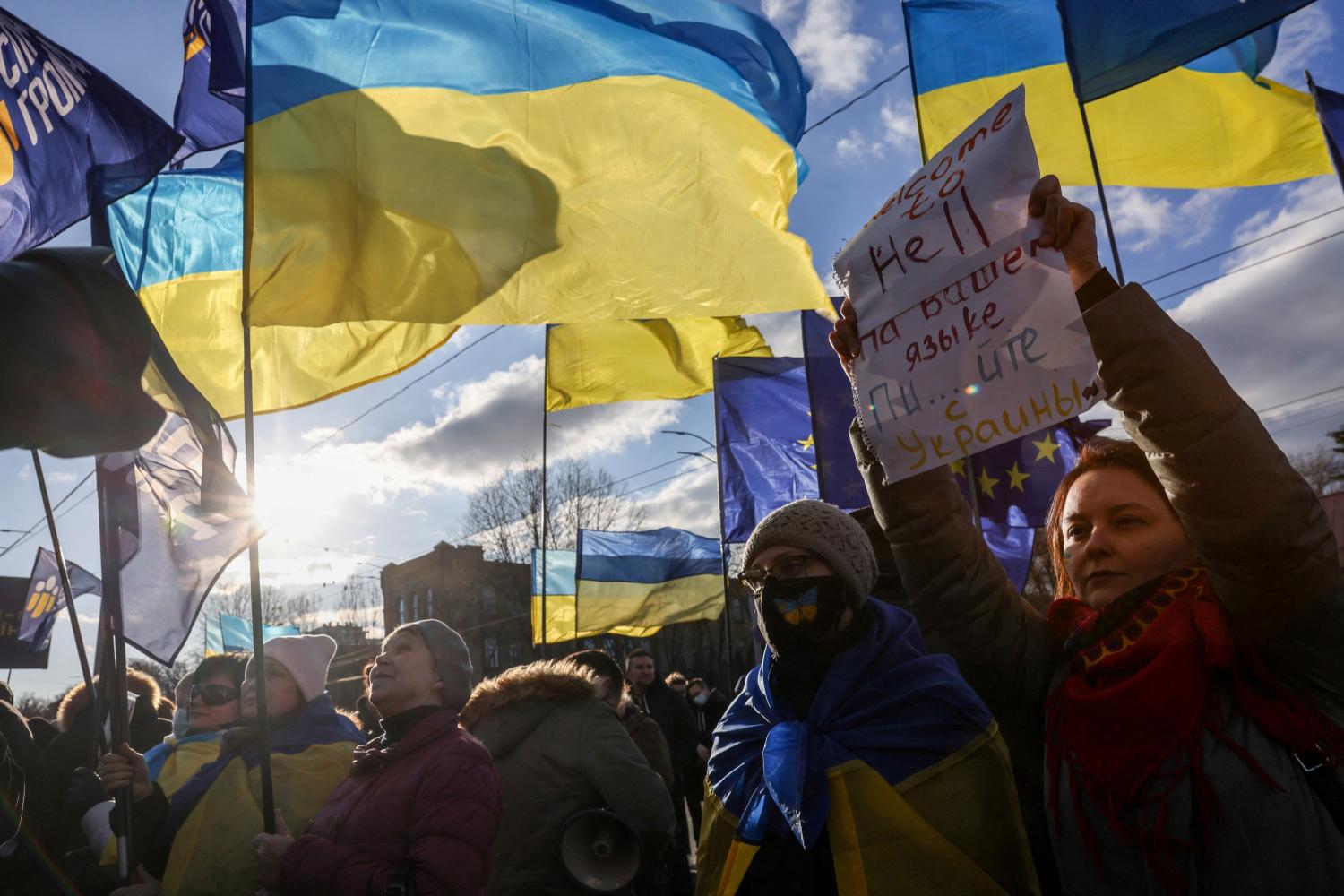


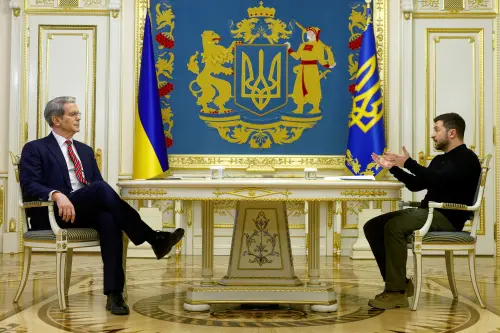
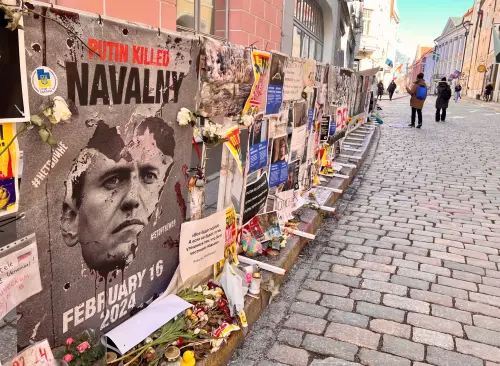
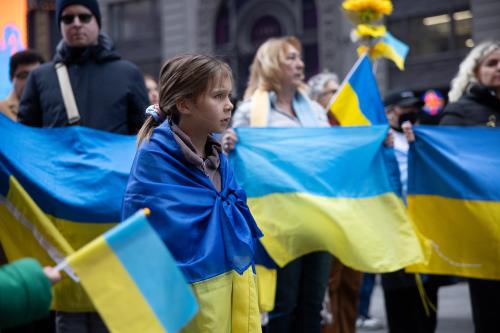


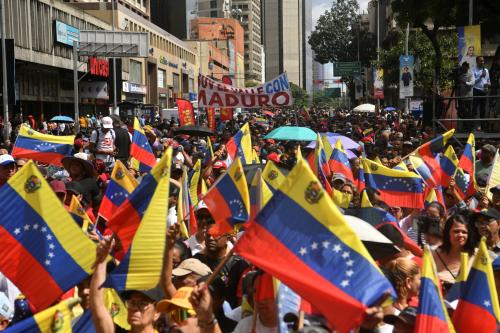
Commentary
Is a deal really emerging on Russia-Ukraine?
April 22, 2025